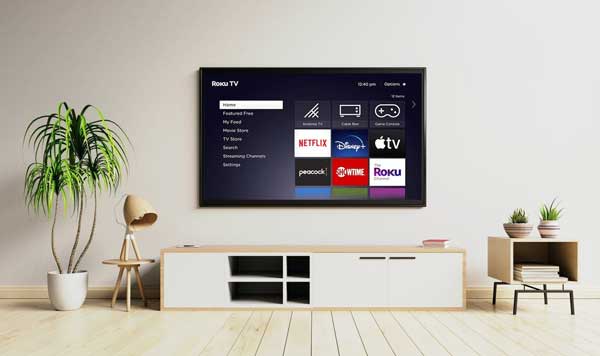Today’s world is seeing an upward trend in consuming content online. In fact, different digital television services are getting a large chunk of the market. You might have already heard about Apple TV, Netflix, Hulu, Amazon Prime, and Disney+. Well, did you know that all of these are IPTV services?
Yes, you might have been relying on one of the internet protocol television (IPTV) services without you being aware of it. But what is IPTV and VOD? Is it something your internet provider delivers to you, or does it rely on radio waves? Well, you will get to know all about it through this in-depth discussion.
What Is IPTV?
Before anything else, let us talk about IPTV. So, IPTV stands for internet protocol television. Another definition of IPTV would be that it enables you to watch digital television service through internet protocol (IP).
You can think of it as a traditional TV service but without the need for traditional cable TV or satellite TV connection. Instead, the digital television service will be through the Internet Service Provider (ISP) network.
One of the perks that you will enjoy when you decide to watch digital television through internet protocol is that you can get video or audio content at any given time. Yes, if you opt for the best IPTV service, you will have access to both recorded audio content and video content.
How Does IPTV or Digital TV Service Works?
The process through which the IPTV providers will offer their service is much different than the traditional television signal service. These content providers will receive live content or linear TV signals from the content providers. Streaming video services will rely on different methods to receive these contents.
The methods might include IP networks or satellite downlinking. Then, the video or audio content will go through the processing stage, where the encoding, transcoding, encryption, or compression is going to take place. After the TV programs get the love of the IPTV technology, it will get multicasted through the network.
The service works by relying upon the core of IP format. By IP format, we are stating that a consumer will not be capable of enjoying the IPTV streams without having a broadband connection. In other words, to get what internet protocol television (IPTV) has to bring to the table, you will need an internet connection.
It should also be noted that with IPTV, you watch programs that are streams of the source media. And the streams are syncing continuously so that the client media player can begin to play the content right away if there is an internet connection.
What Is VoD?
Video on Demand (VoD) is basically when you watch stored content through a streaming device. The device can be a smart TV or a set-top box.
But whenever you talk about old TVs getting the digital television signal or internet TV services, the set-top box is the most common. And yes, it does come with remote control of its own.
Nonetheless, VoD services will offer stored content over the IP. You can think of it as computer data that can be music, movies, series, or other traditional TV shows. But this computer data is not just for you but for all of the people that want to connect to you.
To provide the Video on Demand (VoD) services, the provider would receive content such as music, series, music, and others from the content providers. Then the provider would store the contents to provide their subscribers or users what they want at any given time.
Differences Between IPTV and Video on Demand (VOD) Service
So, even though IPTV and Video on Demand might sound like they are the same. In reality, they are not! There are a couple of things that set them apart. Let us explain.

Type of Content
Video on Demand will provide stored content, such as movies, music, TV shows, and others. But IPTV will mostly provide live content. For example, your favorite sports channel.
Backend
Video on Demand and IPTV setups will vary from one service to another. The reason behind that is that the mode of delivery and the type of content is very different for both.
Mode of Delivery
As we stated, the mode of delivery is different for both. Video on Demand is unicasting. It will rely on the one-to-one delivery method. On the other hand, IPTV is always going to be multicasting. It will depend on the one-to-many delivery process.
Bandwidth Utilization
In comparison, IPTV usually utilizes the bandwidth in a better way. The purpose of the bandwidth is different for both of the services.
User Experience
IPTV is mostly live content. In other words, the content that you will view through it will be live. Some of the service providers might allow you to go back, but you can move forward. Also, the pausing feature comes with premium service providers. They will basically utilize the DVR mechanism.
On the other hand, most of the Video on Demand services will enable you to pause, rewind, fast forward, or skip the entire content. You need to remember that the content you will be watching through these services is not live. They are stored content that will come to you on demand.
Final Words
Currently, the content market has been seeing a rapid shift towards digital methods. People find these mediums more convenient than the other traditional ones. And it does make sense because both the VoD and IPTV have lots of benefits to offer.
That said, now that you know what is IPTV and VoD, the difference between them, and what they are all about, you can surely take part in the hot topics around them.
